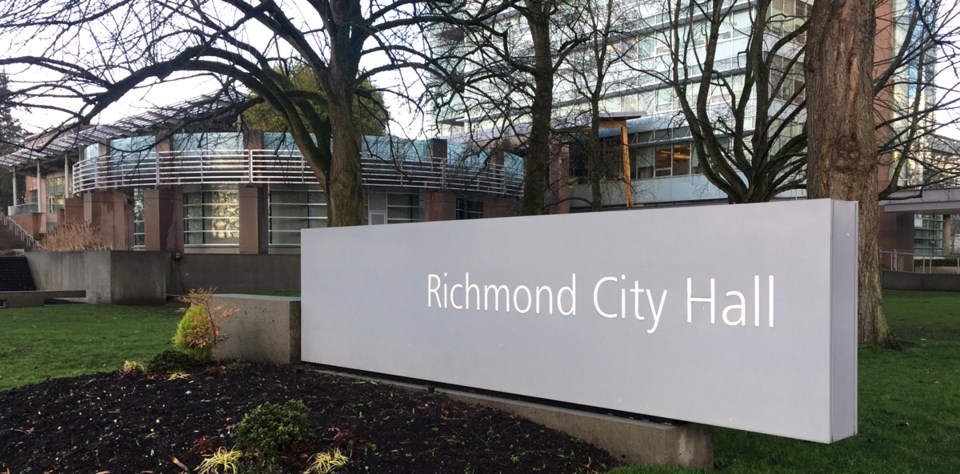Around 900 City of Richmond staff have been temporarily laid off and another 50 have been “redeployed” to cope with the fallout from the COVID-19 pandemic.
The city said the 900 is the “approximate total staffing impact” which includes a number of frozen vacancies, while most relate to staff laid off due to the closures of facilities and the loss of recreational programs.
As for the 50 staff who were asked to redeploy or also be temporarily laid off, city spokesperson Clay Adams said the employees in question – some are understood to be city hall office staff - were given the opportunity to be redeployed because their “existing roles had changed significantly due to the impact of the pandemic.”
“Given the need for staff to support the public health directives and seasonal labour levels, those individuals were asked if they wanted to be redeployed,” explained Adams.
“If not, they were told that layoff was the only option as their existing position was no longer required under the current situation. They were also advised that when circumstances change and their original position is again needed, they would return to it.”
The Richmond News obtained a copy of the redeployment offer, which asked staff if they wanted to work as a city ambassador – which partly involved assisting bylaw officers in maintaining provincial health orders – or as a seasonal labourer.
Both departments required workers who agreed to the redeployment to be available Monday to Sunday, from 9 a.m. to 9 p.m.
The employees who agreed to the change would be paid the same amount they were getting beforehand.
The News understands that most, if not all, of the 50 who received the offer agreed to it.
One such employee who contacted the News said she had no choice but to accept the offer, even though she didn’t think it would be safe for her “walking through Garry Point Park until 9 p.m. at night” as a city ambassador.
“Most people have said yes, apart from me,” said the woman, who asked not to be named, but described herself as an “office worker.”
“I have health issues and I don’t want to be around the public too much. It’s a deal with the devil.”
With regard to the city’s redeployment strategy, Adams said the city is “taking a number of measures to maintain necessary programs and services during the pandemic,” added Adams.
“Our priority is to ensure the safety and wellbeing of the community while providing those services and keeping our facilities in optimum condition for reopening.
“Some areas were identified where added resources are needed to meet provincial requirements of compliance with health directives.”
Adams told the News that the city is saving around $1.7 million per month with the staffing reductions which, he added, started back in March when “the impact of COVID-19 became clearer and has been ongoing since then.”
Several other neighbouring cities, including Vancouver, recently announced pay cuts for non-unionized workers in a bid to save cash.
However, Richmond has stopped short of such a measure, even though it’s in the process of passing a bylaw amendament that will allow it to borrow up to $36.5 million to cover revenue shortfalls because of the pandemic.
“While there has been discussion about changing salary levels, it would be counter-productive to reduce wages for our employees while many are working longer hours and in shifting roles to meet community and provincial needs,” Adams explained.
“Administration continues to monitor the impact of COVID-19 on our community and its financial impacts on our city, and will recommend further strategies and options to council as needed to ensure maintain stability and the ongoing delivery of services.”
The News reported last month how the city has $9.5 million in credit with its bank.
Dal Benning, president of CUPE 718 Local which represents city staff, said his union made a “mutual agreement” with the city in relation to the redeployment.
Civic facilities like pools, arenas, the Oval and community centres remain closed with no revenue from programs, but other sectors, like gaming and tourism, could also have an impact on the city’s bottom line.
Mayor Malcolm Brodie said last month that, despite not knowing what the “total picture” will be, he’s confident the city will manage if the crisis continues for two to three months or even longer.



